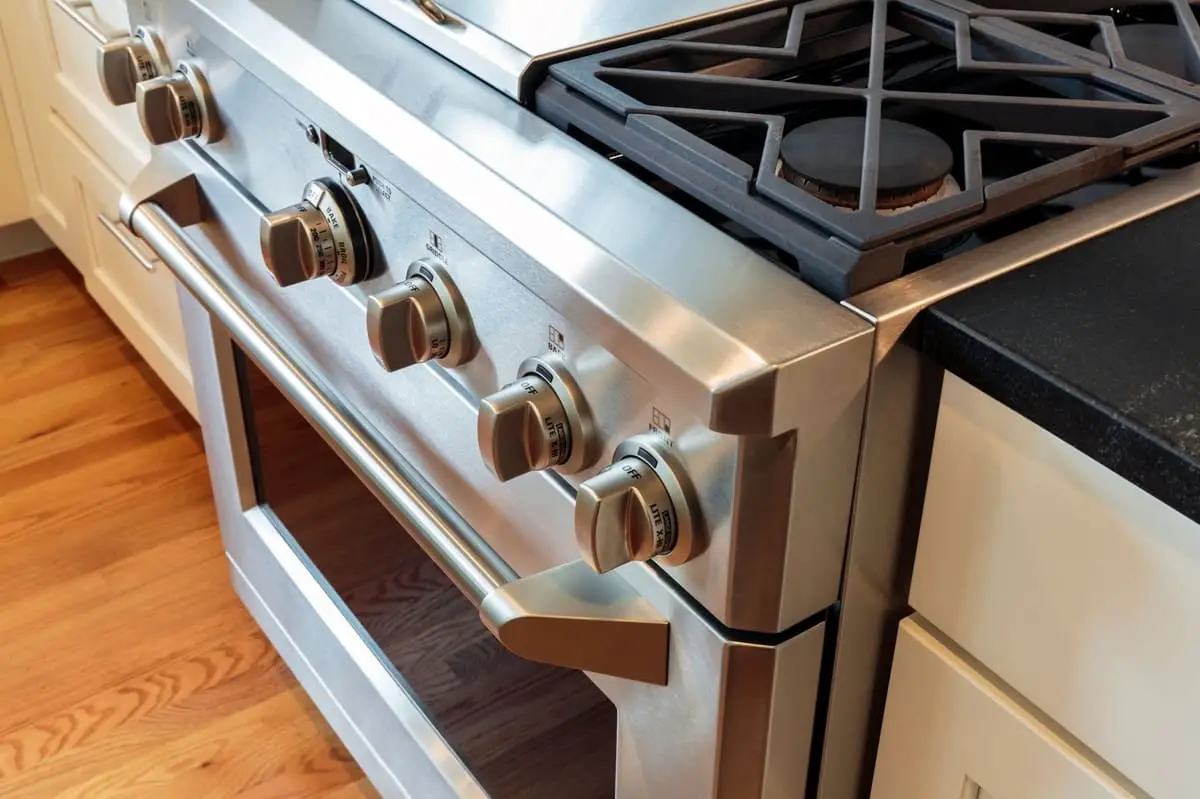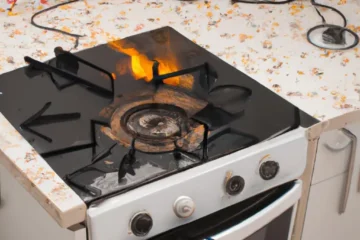Stoves are an essential appliance in most households, used for cooking daily meals and baking treats. However, like all appliances, stoves have a lifespan and will eventually need to be replaced. The question is, how long can one expect a stove to last?
According to various sources, the average lifespan of a stove is around 15 years. However, this can vary depending on the type of stove and how well it is maintained. Gas stoves tend to have a longer lifespan than electric stoves, with some lasting up to 20 years with proper care. Regular cleaning, maintenance, and repairs can also extend the lifespan of a stove.
It’s important to note that the lifespan of a stove can also be affected by factors such as frequency of use and the quality of the appliance. A stove that is used daily and exposed to high temperatures may not last as long as one that is used less frequently and maintained well. Additionally, a cheaper stove may not last as long as a higher-end model. Understanding the factors that affect the lifespan of a stove can help homeowners make informed decisions when purchasing and maintaining their appliances.
Factors Affecting the Lifespan of Stoves
Stoves are a common household appliance that can last for several years. However, the lifespan of a stove can vary depending on several factors. In this section, we will discuss the factors that affect the lifespan of stoves.
Type of Stove
The type of stove is a crucial factor that affects its lifespan. Different types of stoves have varying lifespans. For instance, wood stoves can last for up to 20 years, while gas stoves can last for up to 15 years. Electric stoves, on the other hand, can last for up to 13 years.
Frequency of Use
The frequency of use is another factor that affects the lifespan of stoves. If a stove is used frequently, it is likely to wear out faster than one that is used less frequently. For example, a stove that is used daily will wear out faster than one that is used only a few times a week.
Maintenance
Proper maintenance is crucial to extending the lifespan of a stove. Regular cleaning and maintenance can prevent wear and tear on the stove’s components. For instance, cleaning the burners, knobs, and grates of a gas stove can prevent corrosion and rust. Similarly, cleaning the interior of an electric stove can prevent the buildup of grease and food debris.
Moreover, the quality of the fuel used in a stove can also affect its lifespan. Using high-quality fuel can prevent the buildup of soot and other debris that can damage the stove’s components.
Average Lifespan of Different Types of Stoves
When it comes to purchasing a stove, one of the most important factors to consider is its lifespan. Knowing how long a stove will last can help you budget for future replacements and make informed decisions when choosing a stove type. Here is a breakdown of the average lifespan of different types of stoves.
Gas Stoves
Gas stoves are a popular choice for many households due to their efficiency and affordability. On average, gas stoves can last anywhere from 15 to 20 years with proper maintenance. However, the lifespan of a gas stove can vary depending on the brand, model, and usage.
To extend the lifespan of a gas stove, it is important to clean the burners regularly and ensure that the gas lines are free from leaks. Additionally, it is recommended to have a professional inspect and service the stove every few years.
Electric Stoves
Electric stoves are another common type of stove found in many households. These stoves typically have a lifespan of 13 to 15 years, although some models may last longer with proper care and maintenance.
One of the benefits of electric stoves is that they are easy to clean and maintain. However, they may be more expensive to operate compared to gas stoves, which can impact their overall lifespan.
Induction Stoves
Induction stoves are becoming increasingly popular due to their energy efficiency and safety features. These stoves use electromagnetic energy to heat up cookware, which can result in faster cooking times and reduced energy consumption.
On average, induction stoves can last anywhere from 10 to 15 years with proper maintenance. However, they may be more expensive to repair compared to gas or electric stoves due to their advanced technology.
To extend the lifespan of an induction stove, it is important to clean the surface regularly and avoid using abrasive cleaners or cookware that can scratch the surface.
Signs Your Stove Needs Replacement
Stoves are an essential appliance in any household, and they are expected to last for a considerable amount of time. However, like any other appliance, they eventually wear out and need replacement. Here are some signs that indicate that it may be time to replace your stove:
- Age: The age of your stove is a significant factor in determining whether it needs replacement. If your stove is over 10 years old and has been showing signs of wear and tear, it may be time to consider a replacement.
- Frequent Repairs: If your stove has been requiring frequent repairs, it may be more cost-effective to replace it rather than continue to invest in repairs.
- Inefficiency: If your stove is not heating as efficiently as it used to, it may be time to replace it. An inefficient stove can lead to higher energy bills and can also be a safety hazard.
- Visible Damage: If your stove has visible damage, such as cracks or dents, it may be time to replace it. These damages can affect the stove’s performance and can also be a safety hazard.
- Strange Noises: If your stove is making strange noises, it may be a sign of a serious problem. Strange noises can indicate issues with the stove’s internal components, and it may be safer to replace the stove rather than continue to use it.
Tips for Extending the Lifespan of Your Stove
Stoves are an essential appliance in any home, and they can last for many years with proper care and maintenance. Here are some tips to help extend the lifespan of your stove:
- Clean the burners regularly: Burners can get clogged with food debris, which can affect their performance. Cleaning them regularly can help ensure that they work efficiently and last longer.
- Use the right cookware: Using the wrong type of cookware can scratch the surface of your stove and damage the burners. Make sure to use cookware that is compatible with your stove’s surface.
- Avoid using harsh chemicals: Abrasive cleaners can damage the surface of your stove, so it’s best to avoid them. Instead, use mild soap and water to clean your stove.
- Don’t overload the stove: Overloading the stove with heavy pots and pans can cause damage to the burners and other parts of the stove. Make sure to distribute the weight evenly.
- Keep the stove dry: Moisture can damage the electrical components of your stove. Make sure to wipe up any spills immediately and keep the stove dry.
- Schedule regular maintenance: Regular maintenance can help catch any issues before they become major problems. It’s recommended to have your stove serviced by a professional every few years.
Conclusion
In conclusion, the lifespan of a stove depends on several factors, including the type of stove, how often it is used, and how well it is maintained. Gas stoves tend to last longer than electric stoves, with an average lifespan of around 15 years. Wood-burning stoves can also last a long time if they are well-constructed, well-maintained, and used properly.
Regular maintenance is essential to extend the life of a stove. It is important to clean the stove regularly, following the manufacturer’s instructions, and to avoid using abrasive materials that can damage the stove’s surface. Additionally, it is important to have the stove inspected and serviced by a professional at least once a year to ensure that it is functioning properly and to identify any potential issues before they become major problems.
While the lifespan of a stove can vary depending on several factors, investing in a high-quality stove and taking good care of it can help ensure that it lasts for many years. By following the manufacturer’s instructions for maintenance and use, and having the stove inspected and serviced regularly, homeowners can enjoy the comfort and convenience of a reliable stove for years to come.



